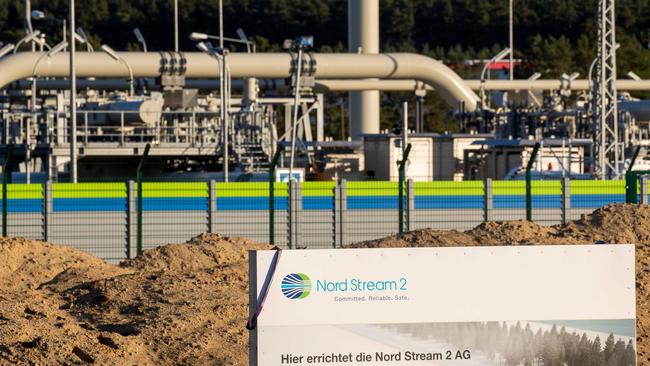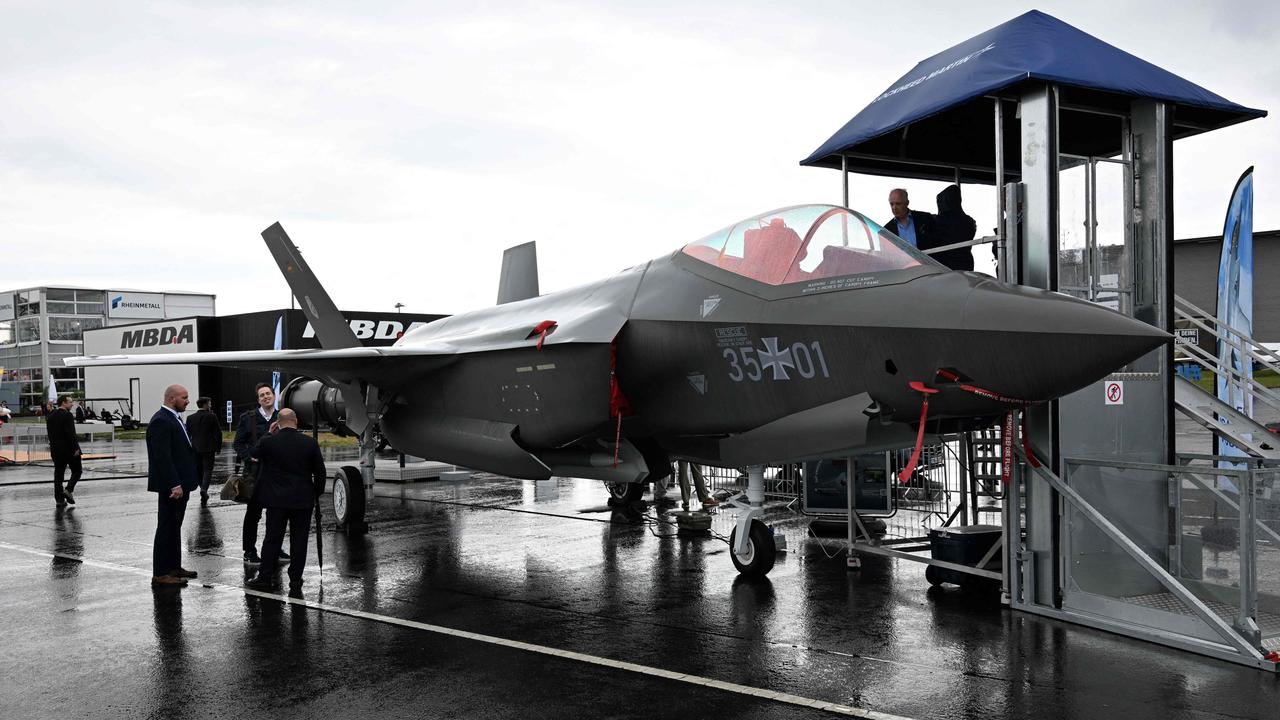US threats hit Russian pipeline
The future of a Russian gas pipeline running into the heart of Europe is in question after 18 companies pulled out of the project in the face of American sanctions.

The future of a Russian gas pipeline running into the heart of Europe is in question after 18 companies pulled out of the project in the face of American sanctions.
The $9bn ($16bn) Nord Stream 2, which would double the amount of gas taken from Russia to Germany beneath the Baltic Sea, is opposed by a broad alliance of Western nations, including the US, Britain, France and Poland.
US President Joe Biden has so far refrained from punishing the German companies involved but the US State Department revealed on Wednesday AEDT that those supplying much of the financial and technical support had been frightened off.
The pipeline has acquired a political significance far beyond the 55 billion cubic metres of natural gas it would supply to Germany and other central European states.
Its opponents claim that it risks destabilising Ukraine and handing Russian President Vladimir Putin greater power to manipulate Europe by threatening to turn off the taps. Nord Stream 2 is owned by Russian state energy company Gazprom, although the pipeline is also financed by six European energy firms.
Its defenders in Germany, including much of the political establishment, argue that it is one of the few remaining areas of co-operation with Moscow and a necessary stepping stone for German energy as the country seeks to wean itself off coal and nuclear power.
After a year’s delay about 97 per cent of the 1200km double pipeline has been winched into place by ship and the final sections are being laid around the Danish island of Bornholm. About 15km also remain to be built off the German coast.
An earlier project following much the same route, known as Nord Stream, was completed in 2012 and is the largest underwater pipeline in the world.
The Nord Stream 2 consortium has so far declined to say when construction will be finished but the Danish government has said it expects the work to be completed by the end of May.
However, the wave of withdrawals has cast doubt on whether the European side of the scheme will be able to operate.
Most of the companies that have abandoned the pipeline are insurers, according to a report handed to the US congress by Secretary of State Antony Blinken, making it harder to obtain the necessary underwriting.
Among the other businesses to have pulled out is German civil engineering conglomerate Bilfinger, which had been contracted to build a facility at Lubmin, where the pipeline makes landfall in Germany, that would warm the gas to temperatures where it could be distributed over land.
As Mr Biden attempts to repair relations with Berlin after the Trump era, he has largely held back from imposing sanctions on Russian companies that might hurt German industry. To date only one company has been penalised: KVT-RUS, which owns one of the project’s two pipe-laying ships, the Fortuna.
This did not satisfy some of the pipeline’s Republican critics, who had previously upheld a strong bipartisan line against the project.
Republican senator Ted Cruz said he was taken aback to see Mr Biden “handing Putin a victory he has been building towards for over a decade”.
“Without immediate and strong action, the Nord Stream 2 pipeline will be completed,” Senator Cruz said. “Our allies across Europe will be subjected to Putin’s blackmail and aggression, NATO’s ability to act will be severely constrained, and billions will flow into the Kremlin’s coffers.”
Nord Stream 2 has its opponents in Germany, too.
Two opposition parties in the Bundestag, the Greens and the liberal Free Democrats, are campaigning to stop it, and Norbert Rottgen, the leading foreign policy expert of Angela Merkel’s centre-right Christian Democratic Union, describes it as an “instrument of political war”.
The Times



To join the conversation, please log in. Don't have an account? Register
Join the conversation, you are commenting as Logout